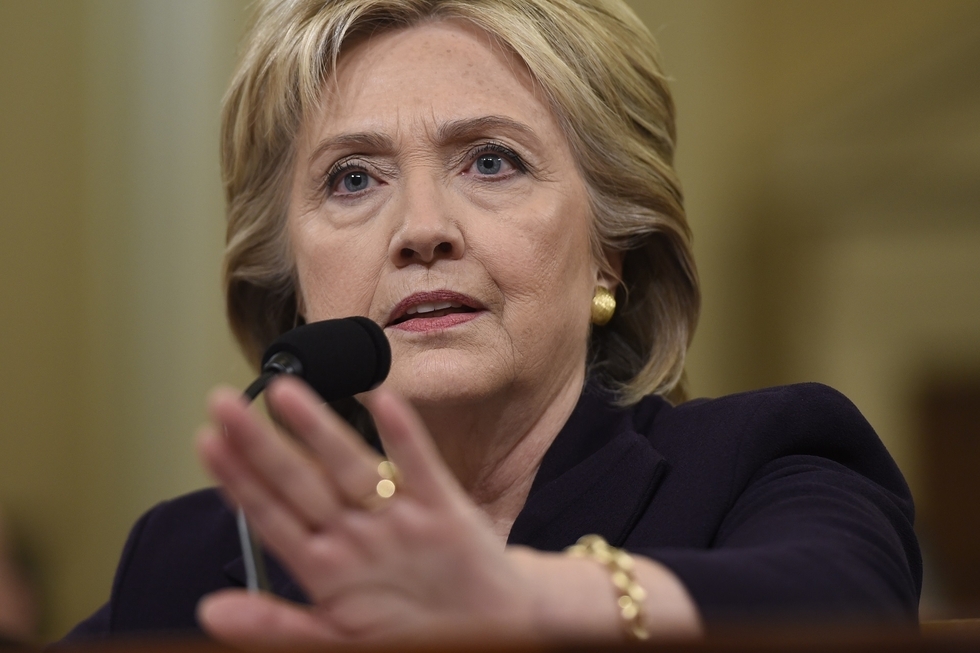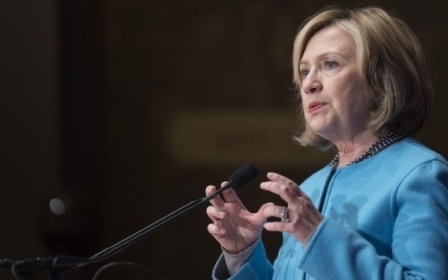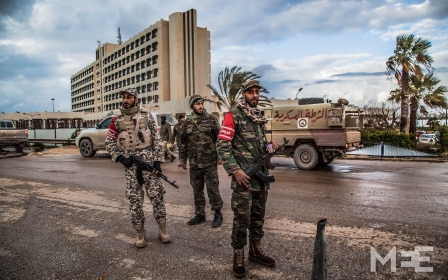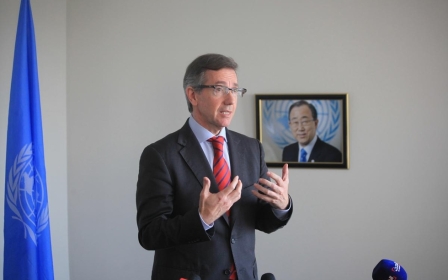US cannot prevent all terrorism, Clinton tells Benghazi inquiry

Hillary Clinton stood her ground Thursday through a grueling day of questioning over the 2012 Benghazi attacks, at a high-stakes congressional hearing that could impact her bid for the White House. The former US secretary of state said she shoulders responsibility for the 2012 attack on the US mission in Benghazi which led to the deaths of four Americans, but said that the US could never hope to prevent every act of terrorism.
Speaking before a congressional panel inquiry on Thursday, the Democratic Party's presidential frontrunner said: "I take responsibility. I felt responsibility for all 70,000 people at the State Department and USAID. I take that very seriously."
Clinton has faced criticism for her department's handling of the Benghazi attack, in which ambassador Chris Stevens and three aides were killed. Her Republican Party enemies hold her responsible for the events, saying the Benghazi mission was poorly prepared and insecure in the violence after the fall of Libyan leader Muammar Gaddafi.
However, she said Stevens "understood we will never prevent every act of terrorism or achieve perfect security and that we inevitably must accept a level of risk to protect our country and advance our interests".
"Chris Stevens understood that diplomats must operate in many places where our soldiers do not," Clinton said in opening remarks. "Where there are no other boots on the ground and safety is far from guaranteed."
"I'm here to honour the service of those four men," Clinton said.
The Benghazi tragedy has hovered over Clinton for three years, threatening to upend her White House candidacy especially after the inquiry launched 17 months ago led to revelations that she used a homebrew email account and server while she was a top diplomat.
A strong performance at the Benghazi hearing could help Clinton convince skeptical voters that it is time to move on from the controversy that has dogged her campaign.
But should she stumble on such a consequential day, she could face a heightened barrage of attacks on her judgment and diplomatic acumen during the run up to the November 2016 election.
The Benghazi committee has been deeply controversial, and in recent weeks Republicans, including the number two in the House of Representatives, Kevin McCarthy, suggested that the panel served to help damage Clinton's standing in the presidential race.
Chairman Trey Gowdy has insisted that his committee is "not investigating" Clinton or allegations of how she handled classified information, but the events of 2012 and the decisions made before, during and after the attacks.
"Madam secretary, I understand there are people frankly in both parties who have suggested that this investigation is about you. Let me assure you, it is not," he said, insisting it was driven by respect for the Benghazi victims.
"They deserve the truth. They deserve the whole truth. They deserve nothing but the truth."
Clinton said the inquiry should not be conducted on party lines: "My challenge to you, members of this committee, is the same challenge I put to myself. Let's be worthy of the trust the American people have bestowed upon us. They expect us to lead, to learn the right lessons, to rise above partisanship and to reach for statesmanship."
Democrats have called for the committee's abolition, arguing it has cost taxpayers nearly $5mn and dragged on far too long.
They seized on McCarthy's remarks, and those of Republican congressman Richard Hanna who said the committee was "designed to go after" Clinton, as evidence the panel seeks to sabotage her presidential bid.
The board's report did not fault the State Department but cited "systemic failures and leadership and management deficiencies at senior levels" that resulted in inadequate security.
Congress has conducted seven probes into the attack, and Clinton launched an Accountability Review Board to investigate the events.
The board's report did not fault the State Department for the attacks but cited "systemic failures and leadership and management deficiencies at senior levels", which resulted in an inadequate security posture.
Critics have pointed to the department's rebuff of requests for additional US security measures in Libya, left unstable after Gadaffi's ouster.
Clinton insisted such requests, or rejection of requests, rarely reached her desk.
"None of them with respect to security in Benghazi did," she said. In the aftermath of exhaustive US reviews, as secretary of state she "moved to correct" the security shortcomings as recommended, she said.
At one point, Republican Peter Roskam argued that Clinton used Gaddafi's overthrow in 2011 as a way to "turn progress in Libya into a political win for Hillary Clinton."
She rejected Roskam's statement as "political," saying: "I don't understand why that has anything to do with what we are supposed to be talking about today."
New MEE newsletter: Jerusalem Dispatch
Sign up to get the latest insights and analysis on Israel-Palestine, alongside Turkey Unpacked and other MEE newsletters
Middle East Eye delivers independent and unrivalled coverage and analysis of the Middle East, North Africa and beyond. To learn more about republishing this content and the associated fees, please fill out this form. More about MEE can be found here.




